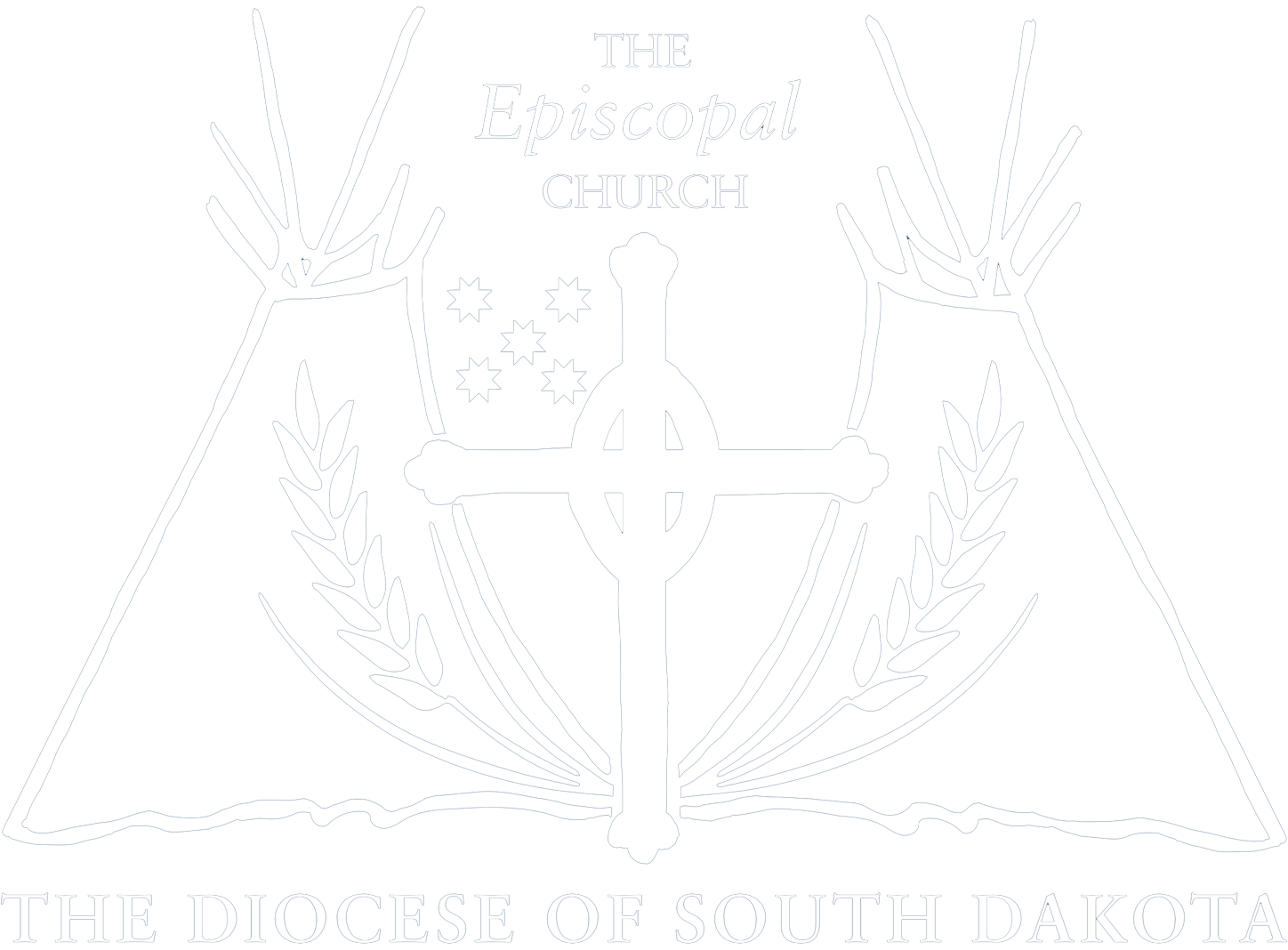Presiding Bishop Sean Rowe visited the Joel Nafuma Refugee Center at St. Paul’s Within the Walls Episcopal Church in Rome, Italy, on May 19. To his right is the Rev. John W. Kilgore, St. Paul’s interim priest, and to his left is Giulia Bonaldi, the center’s director. Photo: Lynette Wilson/Episcopal News Service
[Episcopal News Service – Rome, Italy] For decades, the Joel Nafuma Refugee Center has provided a space for refugees and migrants arriving here in Rome. Today, it’s the Convocation of Episcopal Churches in Europe’s largest refugee assistance program, and one that serves as a model for churches across the continent.
The center, housed in the crypt at St. Paul’s Within the Walls, operates a day shelter and provides food, clothing, Italian- and English-language classes, legal and job assistance, and other services to an average of 150 refugees each weekday. It does so with a small staff, interns and volunteers, and with a budget just under $400,000.
On May 19, Presiding Bishop Sean Rowe visited the center and received a guided tour from its director, Giulia Bonaldi, who explained the center’s holistic approach, from providing sleeping bags to people who live on the streets to teaching them about their legal rights and helping them integrate into society.
“The work that’s happening at this refugee center is tremendous. … This is exactly what Jesus calls us to do,” Rowe told Episcopal News Service during his visit. “I think that we can see this as a model of people who are able to help resettle refugees with a shoestring budget. … I think this is a replicable model across The Episcopal Church in this time, particularly as we [in the U.S.] move from a federally funded program to more grassroots and local organizations; there’s something to be learned here.”
Rowe had travelled to Rome to attend Pope Leo XIV’s May 18 inauguration in the Vatican’s St. Peter’s Square. His visit to the center followed the announcement last week that The Episcopal Church would not resettle white South Africans favored by the Trump administration and would end all federal resettlement work when the church’s federal contract expires at the end of the fiscal year.
Episcopal Migration Ministries has been one of 10 nongovernmental agencies, many of them associated with religious denominations, that facilitated refugee resettlement through the federal program created in 1980. EMM will continue to serve migrants through diocesan partnerships, collaboration with other Anglican provinces worldwide, and local outreach to refugees who are continuing to get settled in American communities.
Named for its founder, the Joel Nafuma Refugee Center is a ministry that dates to the 1970s.
Europe is a destination point for refugees and asylum-seekers fleeing violence and persecution, political instability, civil wars and territorial disputes that rage in some 24 African, Middle Eastern and southern and central Asian countries and regions.
The Italian peninsula is close to Eastern Europe, North Africa and the Middle East and is point of first reception for asylum-seekers, many of whom arrive by boat.
Per the European Commission, when a person pleads for asylum, the country responsible for processing the claim is determined by one of three criteria: immediate family links, which facilitate integration; whether an E.U. country has previously issued the asylum-seeker a visa; or “first country,” meaning the point of first reception.
“We are not as a church leaving the field of refugee ministry; it’s just that the way we do it is changing, and the locus of it is shifting,” Convocation of Episcopal Churches in Europe Bishop Mark Edington told ENS. “Right now, the most active ministry with refugees is in Europe.”
Building on its ministry to refugees and in response to the war in Ukraine, the convocation, with support from Episcopal Relief & Development, began in 2022 accepting grant applications from Episcopal, Anglican and now other churches and missions across Europe interested in working with refugees and migrants.
“Through our partnerships with Episcopal Relief & Development, we’re enabling partnerships with churches in 11 countries and serving 200,000 refugees,” Edington said.
What started with some six projects has grown this year to 20 operating from Romania to Portugal to Cyprus.
“Bishop Mark’s goal was not only to change the lives of refugees, but also to change the lives of churches,” Bonaldi, who also oversees the grant program as the Convocation of Episcopal Churches in Europe’s chief welcoming officer for refugees and migrants, previously told ENS.
The bishop’s goal, she said, was not only to give money and support other organizations engaged in the work, but to get churches to start programs and for members to volunteer to work with refugees. “And this is actually what happened,” she said.
-Lynette Wilson is a reporter and managing editor of Episcopal News Service. She can be reached at lwilson@episcopalchurch.org.

